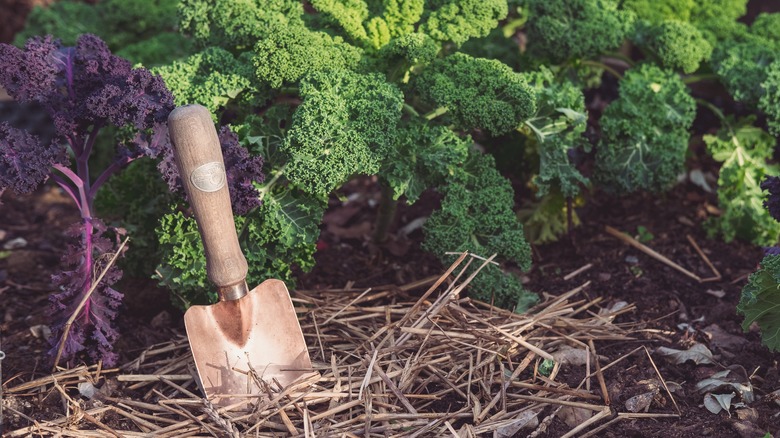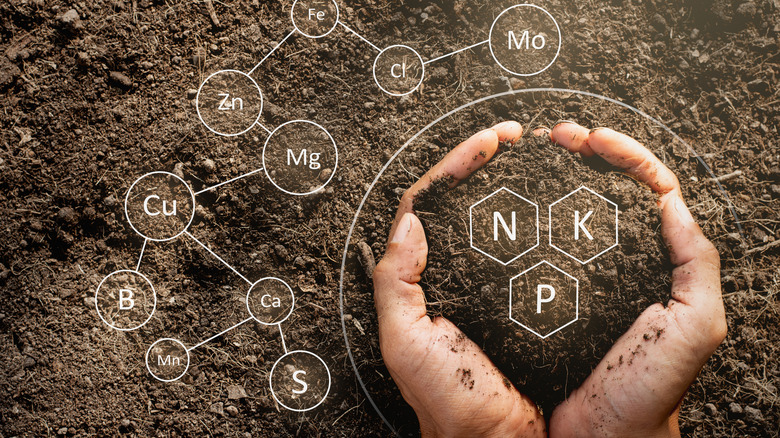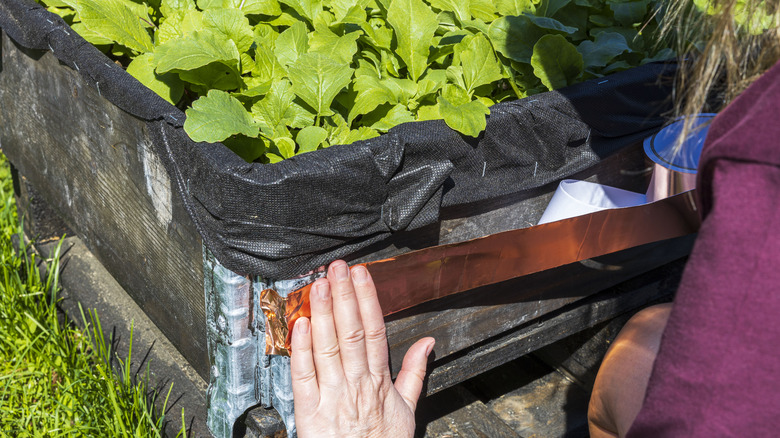Is Investing In Copper Gardening Tools Really Worth It?
Once, copper and its alloys — bronze and brass — were the metals of choice for professional gardeners due to their malleability, durability, and rust resistance. Today, steel, aluminum, and even plastic dominate garden implement manufacturing, achieving similar results at a lower price. There's no denying the prettiness of rose-colored copper, and it's likely why the tools are trending despite the high prices they typically command. They're purported to be easier to use, longer lasting, and better for the soil than tools made from other materials. Some gardeners claim using copper tools reduces slug and snail populations in their gardens and even improves their relationship with the Earth (yes, you read that right).
Practically speaking, copper is easy to sharpen at home with a whetstone. The metal and its alloys also have a low coefficient of friction. Lower-friction materials move smoothly through the earth and plant matter, making for neater cuts and easier work, disturbing the dirt less, reducing infection risks, and helping plants heal faster. Plus, soil simply falls off copper, making cleaning easier. Copper, brass, and bronze are naturally rust-resistant, unlike their steel (stainless steel aside) or corrosion-prone aluminum counterparts. The metal is also light, making hard garden jobs like digging, lifting, or raking less tiring. You could stop here in your cost-benefit analysis, sure. But there are some arguably wilder claims to consider before you put your money where your lettuce is.
Copper conundrum
Similarly to how a cast iron pot imparts iron into food, tiny amounts of copper pass into the soil from copper tools. This, combined with copper having low mobility in the ground, meaning it doesn't readily move around much, could provide plants some measure of disease protection. Indeed, gardeners and farmers have used copper sulfate (or bluestone) and Bordeaux mixture (a copper sulfate and quicklime blend) as an antifungal and antibacterial treatment for over a century. However, there is little reputable research that proves so.
Plants need copper to regulate chlorophyll and seed production and enzymatic reactions. A plant lacking copper looks frost-damaged, with curled, yellowing leaves. In 2018, Cornell researchers found that increased copper intake improved wheat crop yields seven-fold (via the USDA). Could the teeny particles shed from your copper tools improve plant health? "While this concept remains somewhat debated, I've observed positive results in my own gardening practices," says Tony O'Neill, author and founder of Simplify Gardening, via Livingetc.
Then there's the fact that biodynamic agriculture practitioners prefer copper tools, who believe the metal positively influences energy or life forces within the soil. For example, Waltham Place, a renowned biodynamic garden in the U.K., exclusively uses (and makes and sells) copper gardening tools. To date, the practice's guiding principles have found little support within the scientific community.
Proceed with caution
Some garden gurus swear by copper tools for banishing mollusks from the garden — the why ranges from snails receiving a nasty shock from the copper to the metal negatively interacting with their blood. The idea may stem from the various copper-based pesticide powders and sprays. However, there are some downsides to copper tools, too. For one, they're more expensive than tools made from most other materials. They should last years, even generations though, and some toolmakers offer multi-decade warranties. There's also the issue that pure copper — and even brass and bronze — are soft. Hitting a big stone or heavy metallic object with your copper shovel will likely cause considerable damage.
If you want to add copper tools to your garden kit, they're also tricky to find in the U.S. You can buy a bronze Castor hand trowel by Austrian makers PKS Bronze Tools — $65.00 from Fairview Orchards. Patina Home & Garden sells a handmade copper gardening tool set with two trowels, a weeder, and a cultivator for $160.00. If you're looking to save money, do what TikTok user @electroculturegarden512 did and wrap the tines of your fork or rake in copper sheet or scrap copper electrical wire.


